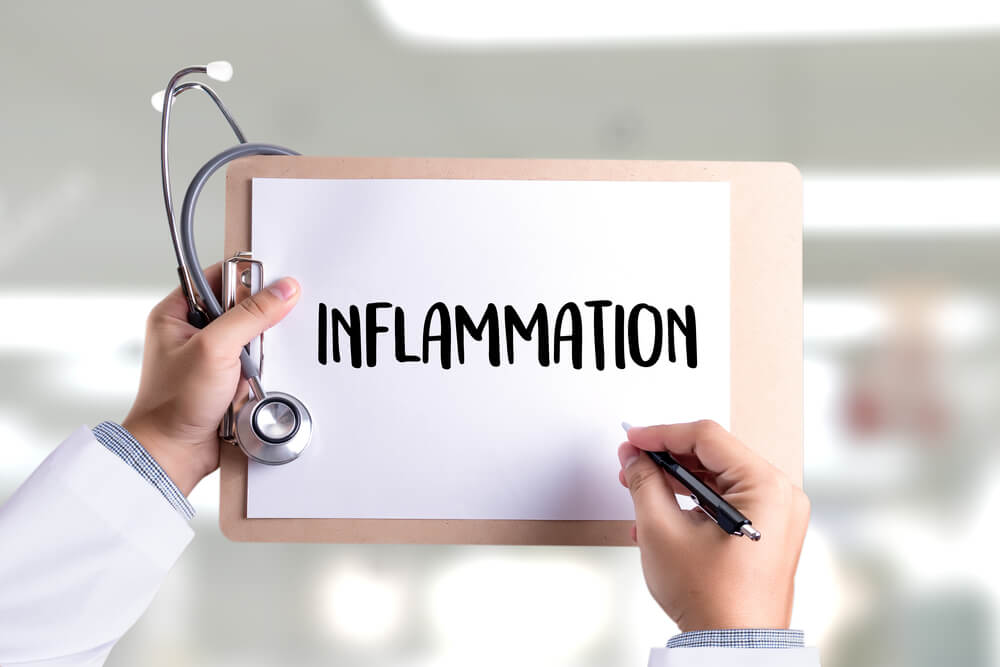Inflammation occurs in the body in response to an injury or infection. It’s the body’s way of signalling to the immune system to heal, fight viruses and bacteria, and repair any damaged tissue.
When something harmful or irritating is affecting us, it’s the body’s automatic biological response to try and remove it. Wounds, infections and illnesses could become fatal if the body did not know when to fight them off.
Body inflammation has also been linked to diseases such as heart disease and stroke, and a significant amount of evidence has linked it to autoimmune disorders, such as rheumatoid arthritis and lupus.
We’ve created a guide outlining what body inflammation is and what causes it.
Firstly, there are two different types of body inflammation – acute inflammation and chronic inflammation.
But what are the differences?
Acute inflammation occurs in the body following a laceration to the skin, a sprained ankle, bruising or even a sore throat and affects include swelling, redness, pain and in some cases loss of function on a short term basis.
On the other hand, chronic inflammation can affect the whole body and cause a number of persistent, long term effects triggered by a perceived internal threat.
What are the symptoms of inflammation?
There are several symptoms associated with both acute inflammation and chronic inflammation including pain, redness, immobility and heat. However, these symptoms are only apparent when inflammation occurs to the skin. If inflammation occurs deep inside the body, the symptoms can become more difficult to spot but include fatigue, mouth sores, chest pain, abdominal pain, fever, rash and joint pain.

How to treat inflammation
As inflammation is part of the body’s natural healing process, it’s often better to let it run its cause rather than attempting to reduce the inflammation. However, in severe cases, anti-inflammatory medications are available as well as prescription drugs such as Glucocorticoids which are prescribed to treat arthritis, temporal arteritis, dermatitis, inflammatory bowel disease (IBS), systemic lupus, hepatitis, asthma, allergic reactions and sarcoidosis.
Of course, a healthy diet and lifestyle can also play a huge role in helping to keep inflammation under control. Following an anti-inflammatory diet is a long-term way to manage the condition, favouring fruits, vegetables, lean proteins, nuts, seeds, healthy fats and whole grains whilst avoiding all processed foods and meats.

DID YOU KNOW?
KeraHealth Hair contains both B vitamins and antioxidants that are not only important in reducing hair loss but also in reducing inflammation.
TAKE THE RIGHT AMOUNT OF VITAMINS FOR YOUR HAIR
Formulated to help fill gaps in women's diets.*
SHOP KERAHEALTH HAIR



